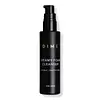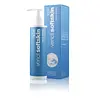What's inside
What's inside
 Key Ingredients
Key Ingredients

 Benefits
Benefits

 Concerns
Concerns

 Ingredients Side-by-side
Ingredients Side-by-side

Water
Skin ConditioningButylene Glycol
HumectantPentylene Glycol
Skin ConditioningGlycerin
HumectantSodium Cocoyl Glutamate
CleansingCoco-Betaine
CleansingCaprylyl Glycol
EmollientCetyl Hydroxyethylcellulose
Emulsion StabilisingPCA Ethyl Cocoyl Arginate
MoisturisingPyrus Malus Fruit Extract
Skin ConditioningBeta Vulgaris Root Extract
Skin ConditioningFructooligosaccharides
HumectantGlycolic Acid
BufferingCaprylhydroxamic Acid
Piroctone Olamine
PreservativeTetrasodium Glutamate Diacetate
Bakuchiol
AntimicrobialSodium PCA
HumectantAloe Barbadensis Leaf Juice
Skin ConditioningArtemisia Vulgaris Extract
Skin ConditioningDipotassium Glycyrrhizate
HumectantLaminaria Digitata Extract
Skin ProtectingZinc PCA
HumectantCinnamomum Cassia Bark Extract
MaskingSanguisorba Officinalis Root Extract
CleansingZingiber Officinale Root Extract
MaskingWater, Butylene Glycol, Pentylene Glycol, Glycerin, Sodium Cocoyl Glutamate, Coco-Betaine, Caprylyl Glycol, Cetyl Hydroxyethylcellulose, PCA Ethyl Cocoyl Arginate, Pyrus Malus Fruit Extract, Beta Vulgaris Root Extract, Fructooligosaccharides, Glycolic Acid, Caprylhydroxamic Acid, Piroctone Olamine, Tetrasodium Glutamate Diacetate, Bakuchiol, Sodium PCA, Aloe Barbadensis Leaf Juice, Artemisia Vulgaris Extract, Dipotassium Glycyrrhizate, Laminaria Digitata Extract, Zinc PCA, Cinnamomum Cassia Bark Extract, Sanguisorba Officinalis Root Extract, Zingiber Officinale Root Extract
 Reviews
Reviews

Ingredients Explained
These ingredients are found in both products.
Ingredients higher up in an ingredient list are typically present in a larger amount.
Glycerin is already naturally found in your skin. It helps moisturize and protect your skin.
A study from 2016 found glycerin to be more effective as a humectant than AHAs and hyaluronic acid.
As a humectant, it helps the skin stay hydrated by pulling moisture to your skin. The low molecular weight of glycerin allows it to pull moisture into the deeper layers of your skin.
Hydrated skin improves your skin barrier; Your skin barrier helps protect against irritants and bacteria.
Glycerin has also been found to have antimicrobial and antiviral properties. Due to these properties, glycerin is often used in wound and burn treatments.
In cosmetics, glycerin is usually derived from plants such as soybean or palm. However, it can also be sourced from animals, such as tallow or animal fat.
This ingredient is organic, colorless, odorless, and non-toxic.
Glycerin is the name for this ingredient in American English. British English uses Glycerol/Glycerine.
Learn more about GlycerinGlycolic Acid is arguably the most famous alpha hydroxy acid (AHA) with tons of research backing its benefits.
It is found naturally in sugar cane but the form used in skincare is usually synthetic for purity and stability.
Glycolic acid removes the top layer of dead skin cells to allow newer and fresher ones to emerge.
AHAs work by breaking down the structural “glue” that holds old skin cells in place. When that buildup is gone, your skin can renew itself more efficiently.
Research also shows glycolic acid stimulates collagen production, helping to firm and thicken the skin over time. This is one of its biggest advantages over other AHAs.
Overall, glycolic acid helps with:
Fun fact: Glycolic acid boosts skin hydration by helping it produce molecules that increase hyaluronic acid naturally.
To work best, glycolic acid products should have a pH between 3-4 (that’s where exfoliation is most effective but still gentle on skin).
The pH and concentration of a product are key to its effectiveness:
It is normal to feel a slight stinging sensation when using glycolic acid. This usually fades as your skin adjusts.
Because glycolic acid has the smallest molecular size in the AHA family, it can penetrate deeper, which enhances its effectiveness but also makes it more likely to irritate sensitive skin.
If your skin is very sensitive or prone to rosacea, glycolic acid may be too strong; in that case, try milder options like lactic acid or a PHA instead.
Recent studies suggest glycolic acid might even help protect against UV damage. But don’t skip sunscreen! Freshly exfoliated skin is more sensitive to the sun.
Glycolic acid is a skincare superstar. It smooths, brightens, hydrates, and firms the skin. Unless you’re highly sensitive, it’s well worth adding to your routine.
Read more about some other popular AHA's here:
Learn more about Glycolic Acid